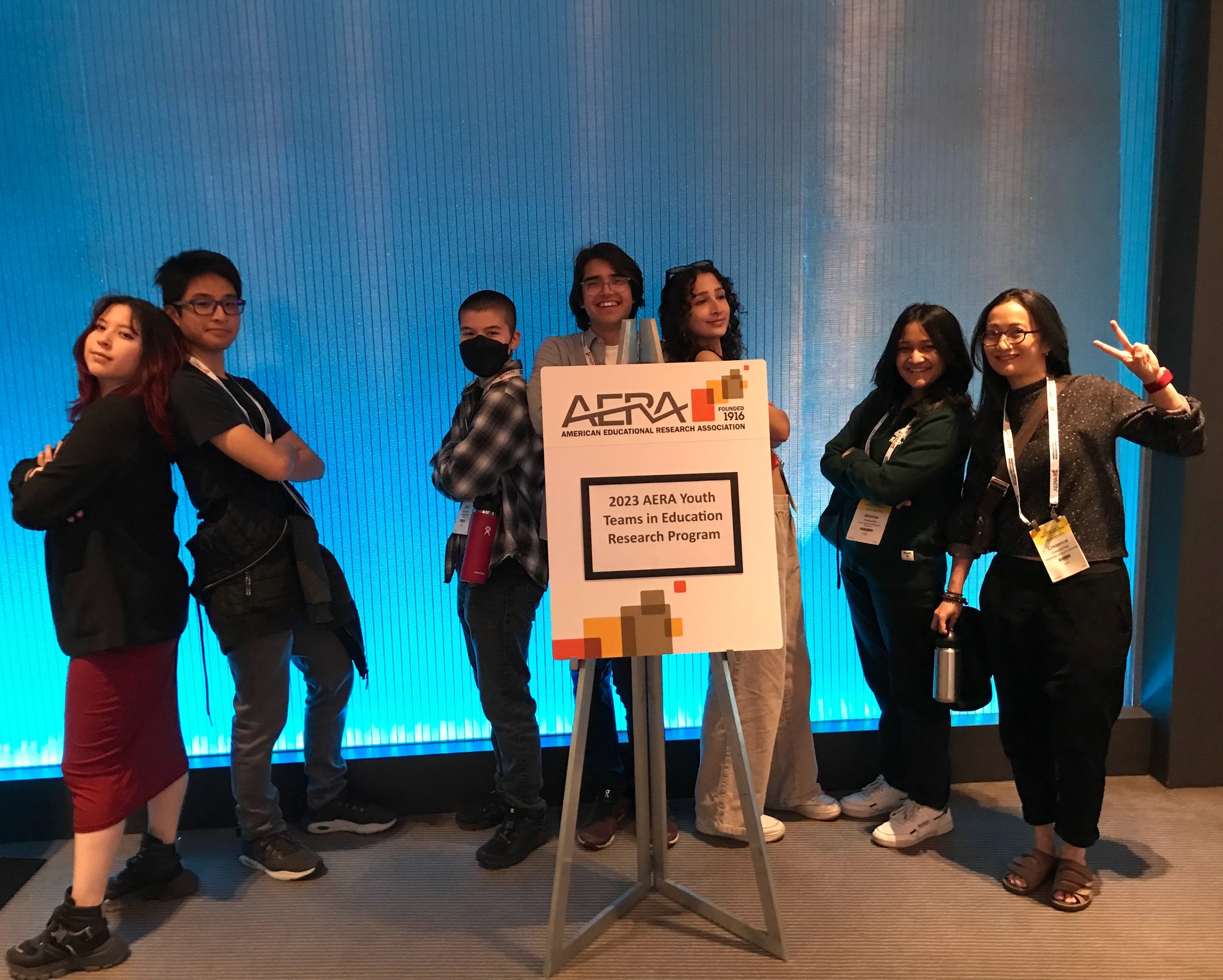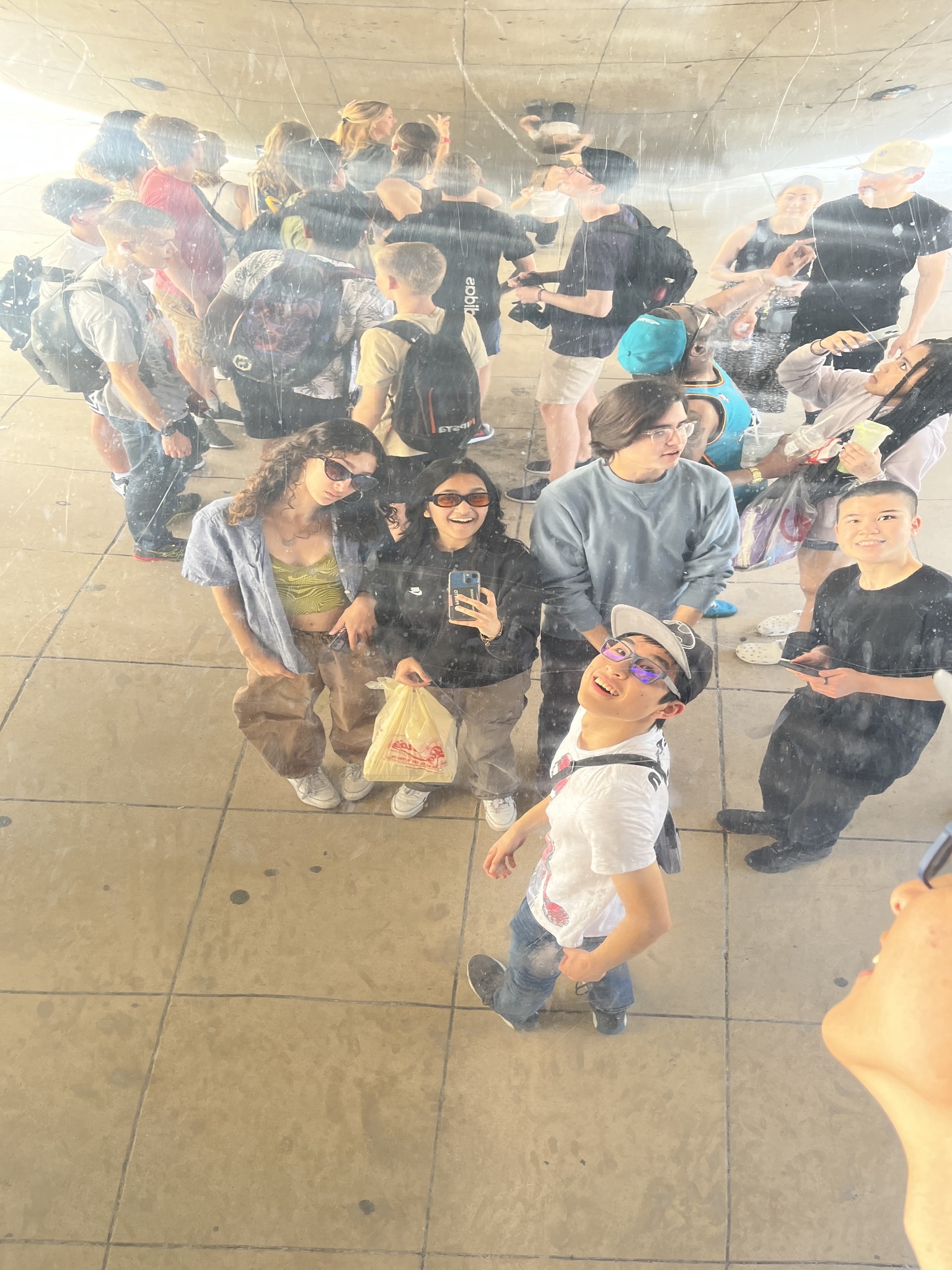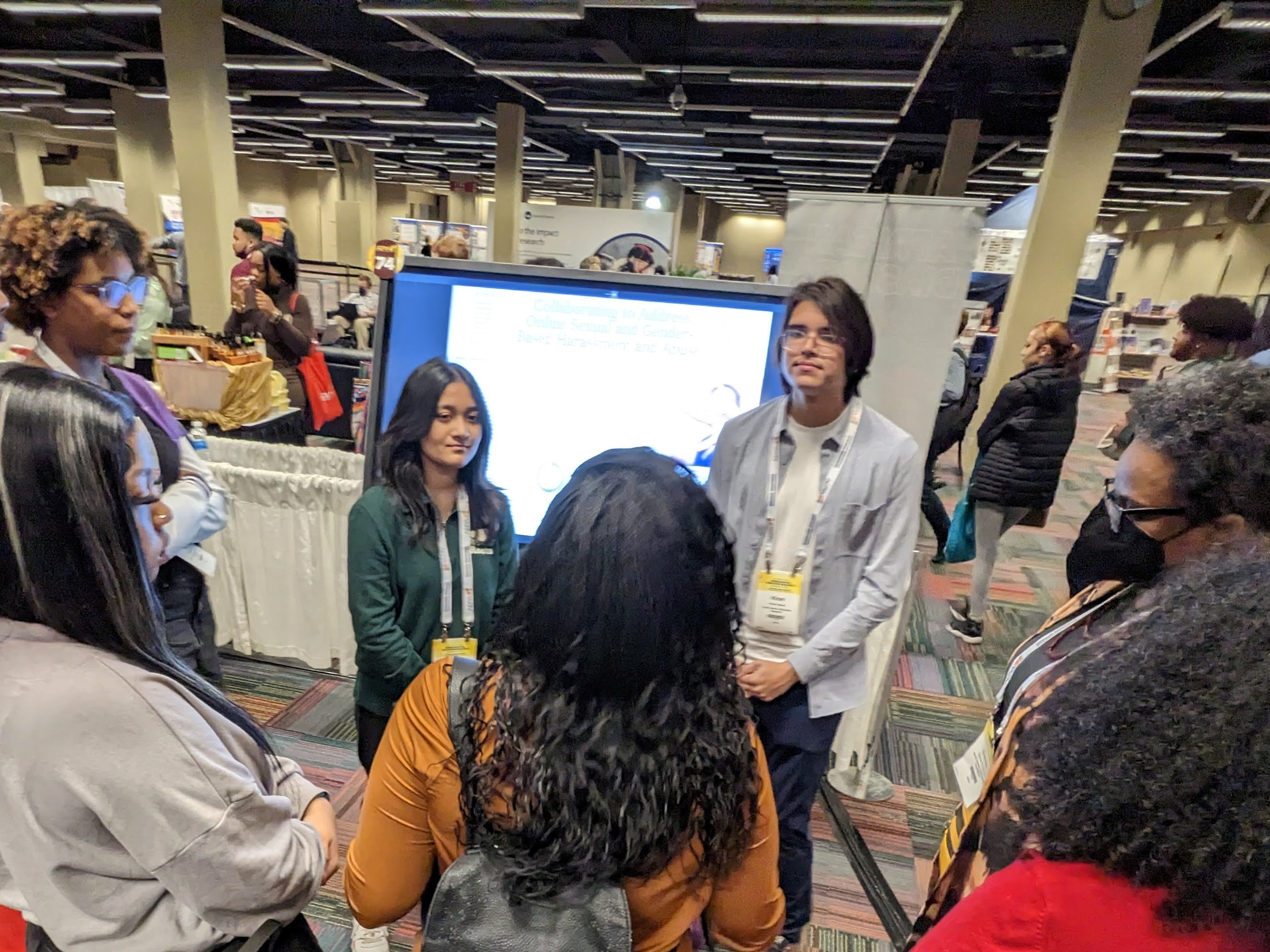371 Bloor Street West
Toronto, ON M5S 2R7 get directions
Toronto, ON M5S 2R7 get directions

.png?command_1=resize&width_1=220)
.png)
UTS members of the Action Against Gender-Based Violence committee, Kiran, Akshita, Jaya, Simon and Curtis, engaged in research conversations with seasoned education researchers, professors, educators, school administrators, and other youth research teams at AERA, presenting by digital research poster session.
Five students on the UTS Action Against Gender-Based Violence committee travelled to the American Educational Research Association (AERA) conference in Chicago this spring to present co-designed research on a troubling issue faced by their generation – online sexual harassment among youth.
“The research confirmed the benefit and value of educating students about online sexual harassment, especially in the age of social media where online extremist rhetoric and sexual harassment can be so rampant,” says S6 (grade 12) student Jaya, who was one of the students presenting at the conference, along with S6s Simon, Kiran and Curtis and S5 (grade 11) Akshita, under the supervision of Dr. Cresencia Fong, the UTS head of innovation and research.

University of Toronto student Anasofia Florez ’22 (left), a former member of the Action Against Gender-Based Violence committee, was invited to join UTS students at the conference as she made a major contribution to this project. Pictured with Curtis, Simon, Kiran, Jaya, Akshita and Dr. Cresencia Fong, UTS head of innovation and research.
The students partnered with primary investigator, Dr. Faye Mishna, a professor at the University of Toronto’s Factor-Inwentash School of Social Work, and UTS social workers, staff and teachers to collaborate on the research.
“UTS regularly engages in co-designed research between University of Toronto researchers and UTS teachers, but what makes this project so special is the three-way collaboration between Faye’s team, UTS staff and students on the Action Against Gender-Based Violence committee,” says Cresencia. “We are supporting U of T and U of T is supporting us too. It's not performative – it’s a real research-practice partnership that contributes to UTS strategic priorities and the research aims of the University, with the students and researchers as equal partners.”
The Online Sexual and Gender-Based Harassment and Abuse research project started with a survey in 2021 that gauged UTS students’ understanding of online sexual harassment to determine the scope of the issue and what information would be most helpful to them.
 Training that makes a difference
Training that makes a differenceFaye and the UTS Social Work team, with feedback from the students and guided by the survey results, adapted content from the University College London Institute of Education and School of Sexuality Education to co-develop a voluntary student workshop about online sexual harassment that was offered to F2 and M3 (grade 8 and 9) students at UTS in the 2022-23 school year. Before the workshop, a survey took stock of their level of understanding, and after the workshop a follow-up survey gauged whether students felt the workshop was effective and helpful for them.
From sextortion to luring, cyberphishing to doxing, toxic masculinity to rape culture, the one-hour sessions, which were co-led by UTS Social Workers Joelle Therriault and Stephanie Stavro-Pearce, and facilitators from Factor-Inwentash School of Social Work, explained the various forms online sexual harassment can take.
“We know from our work with bullying and harassment that sometimes when young people are experiencing it, they're not necessarily naming it as such,” says Joelle. “There's a disconnect. We are trying to expand their understanding of online behaviors that fall into these categories in an effort to enable students to name and take a stand against bullying and  harassment as opposed to brushing it off.”
harassment as opposed to brushing it off.”
The workshop culminated with strategies young people can use to address unwanted online harassing and bullying behavior such as blocking or muting people who send offensive content, reporting users to the social media platforms, their school or the police, or creating anonymous accounts.
Jaya says, “I remember learning about online sexual harassment with my classmates when I was younger and being so surprised about what it was because almost all of us had been sexually harassed before, and we didn’t even realize it – it’s just so common. There’s a lot of things that you can't put your finger on but really make you uncomfortable, that you've been taught to sweep under the rug or brush off because it's normal or not a big deal, but they do count. Absolutely.”
Five workshop sessions were attended by 108 F2 and M3 (grade 8 and 9) students at UTS.
The post-workshop survey found that 90 per cent of participating UTS students improved their understanding of online sexual and gender-based harassment, rape culture, active bystander strategies, and ways to stay safer online and and 96 per cent percent planned to apply the content in their lives.
One student commented: “This isn’t stuff we normally learn in school, or if we do, it’s very minimal… But I think it’s pretty important to learn about.”
Presenting their research poster at the AERA conference was an incredible opportunity for the students on the Action Against Gender-Based Violence committee. They were one of only two teams from Canada and 13 youth teams in total, selected from 100 teams, that took part in a new pilot project for secondary students to present at AERA, called the Youth Teams in Education Research Special Program.
Jaya says the AERA conference provided incredible opportunities for networking. “Youth teams from all over were doing really amazing things and we got to talk to them and learn about how they were involved in research. We also got to attend the conference, and it was really great to be immersed in that kind of academic environment, and see other symposiums and presentations.”
Dr. Jen Cypher, administrative coordinator to UTS Student Services and staff co-supervisor of the Action Against Gender-Based Violence committee, says, “It’s really amazing that the students are involved in university-level research and they were allowed to help shape the project, and then take it to a major international academic conference like AERA which was attended in person by over 14,000 people from 70 countries around the world. Not many students get to do something like that while they are still in high school. It’s a real honour.”

Akshita and Kiran presenting to delegates at the AERA conference.
.png)